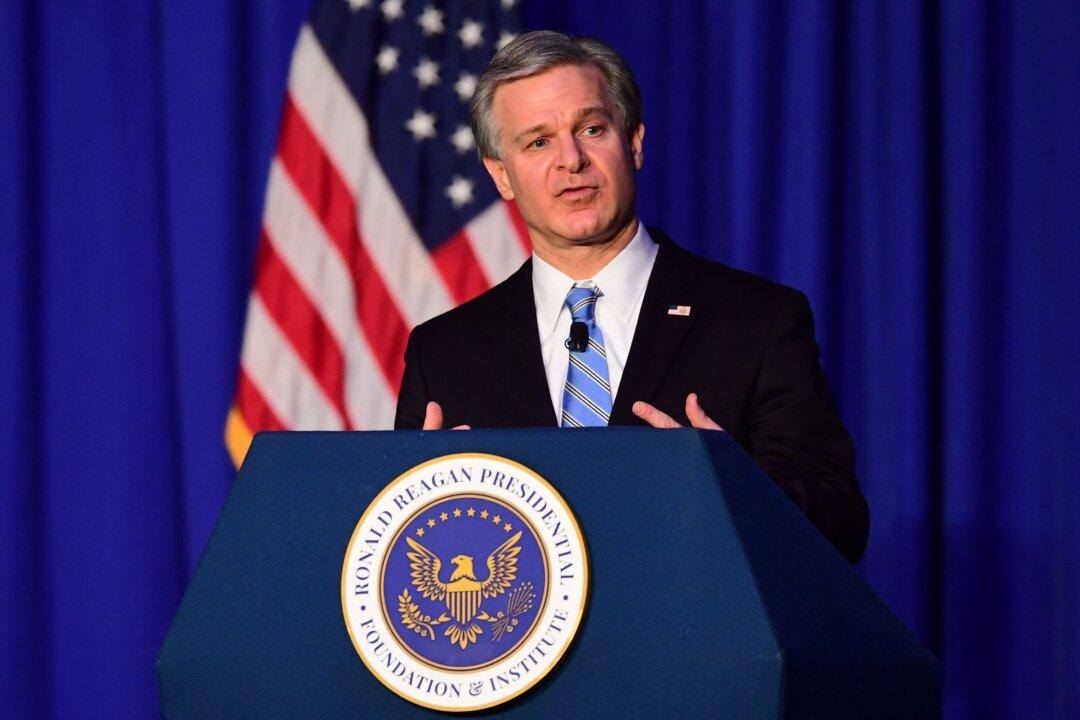
FBI Director Christopher Wray speaks at the Reagan Library in Simi Valley, Calif., on Jan. 31, 2022. Frederic J. Brown/AFP via Getty Images
FBI Director Christopher Wray says the bureau is “concerned about the possibility” of Russian attacks on critical U.S. infrastructure targets.
Wray’s comments came Tuesday during an appearance before the Detroit Economic Club and echoed President Joe Biden’s warning a day earlier.





